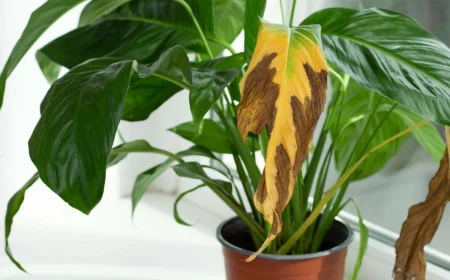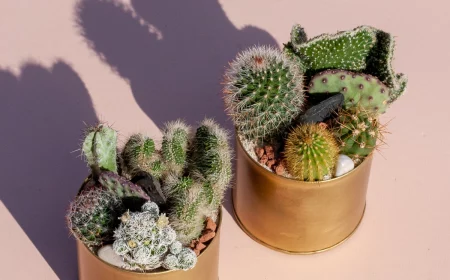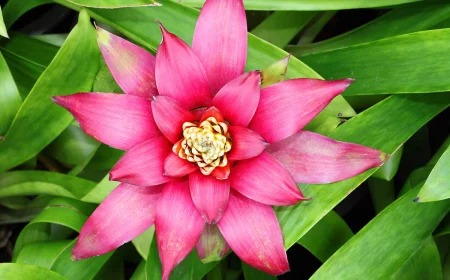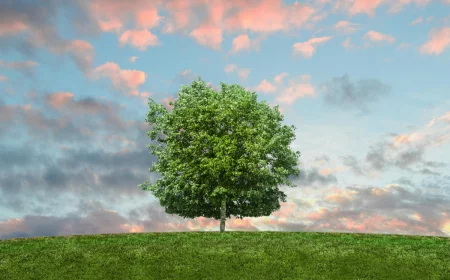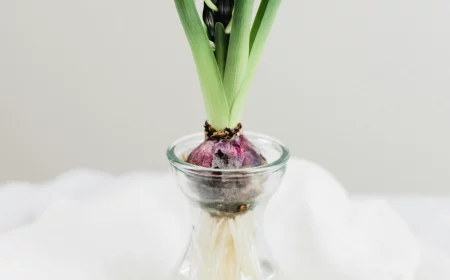Annuals vs. Perennials: The Real Secret to a Garden That Actually Works
I’ve spent what feels like a lifetime with my hands in the dirt, from sweeping floors at a nursery to designing gardens for all sorts of people. And after all this time, the first big question everyone has is always the same: should I plant annuals or perennials? It sounds simple, but honestly, this choice sets the stage for everything—your budget, your weekend chores, and how you feel about your garden a few years from now.
In this article
New gardeners often see it as a black-and-white debate. Annuals give you that big, flashy color all summer long but are gone by fall. Perennials come back every year but usually have a shorter, more specific bloom time. And while that’s technically true, it kind of misses the point.
Let’s be real. This isn’t about which plant is “better.” It’s about understanding what job each plant is designed to do. Once you get that, you can build a garden that looks amazing and, more importantly, works for you, not against you.

Thinking Like a Plant: Why They Do What They Do
Before you even think about buying a plant, you have to get inside its head. Every plant is on a mission, driven by a biological clock with one goal: make more plants. How it gets that done defines its entire life. I always tell people to stop seeing flowers as just pretty decorations and start seeing them for what they are—powerful little reproductive engines.
Annuals: The All-Out Sprinters
An annual plant has one shot. One season. From the moment it sprouts until the first frost, it has to grow, flower, attract pollinators, and set seed. It’s a frantic, pedal-to-the-metal sprint to the finish line. This is exactly why they bloom so much! They pour every bit of energy they have into making flowers because they don’t need to save anything for winter. For them, there’s no tomorrow.
Think about plants like marigolds, zinnias, and petunias. Their roots are usually pretty shallow. They aren’t wasting time building a deep, woody root system to survive the cold. And because they’re working so hard, they are incredibly hungry and thirsty. They need a constant supply of food and water to fuel their short, spectacular show. This is a huge clue for how to care for them.

Perennials: The Marathon Runners
Perennials, on the other hand, are in it for the long haul. Their goal is to survive for years. When you plant a new perennial, like a coneflower or a hosta, its main job in that first year isn’t even to flower. It’s to build a deep, robust root system. This is its survival insurance—the key to finding water in a dry spell and storing up energy to make it through the winter.
I love the old saying: “The first year they sleep, the second they creep, and the third they leap.” It’s the perfect way to manage expectations. A new perennial bed won’t look like a finished masterpiece in its first season. All that energy is going underground. This is also why their bloom times are often shorter; they have to balance making flowers with saving enough fuel for next year. They are true marathon runners, pacing themselves for a long life.

Biennials: The Quirky In-Betweeners
And then you have biennials, the garden’s cool, slightly weird middle child. They live for two years. The first year, a plant like a foxglove or hollyhock is all about leaves—it grows a low cluster of foliage called a rosette and focuses on its roots. No flowers. But in year two, BAM! It sends up a magnificent flower stalk, blooms its heart out, sets seed, and then its life cycle is over.
The magic trick with biennials? Let them go to seed! They often self-sow, creating a natural, cottage-garden vibe. Here’s a pro-tip for a continuous show: plant a batch of them one spring. The next spring, plant a second batch. That summer, your first group will be flowering. The year after, your second group will flower while the seeds from the first group are starting their own two-year journey. It’s a little bit of planning for a huge payoff.

How the Pros Really Use Annuals
In professional designs, annuals are rarely the foundation of a garden. They’re the high-impact accessories, the
Inspiration:


Your annuals are working overtime to produce those constant blooms, and they get seriously hungry. To keep them performing at their peak, think of feeding as part of your weekly routine, not an afterthought.
- For container annuals: A weekly dose of a liquid fertilizer like Neptune’s Harvest Fish & Seaweed is perfect. It’s quickly absorbed and provides a steady stream of nutrients.
- For in-ground beds: Incorporate a slow-release granular fertilizer, such as Osmocote Smart-Release, at planting time. It will feed your plants for months, saving you a lot of work.

That awkward moment when your beautiful peonies are done by June, leaving a green hole in your garden?
That’s where the magic of layering comes in. Don’t leave empty space between your perennials. Instead, tuck in vibrant annuals like cosmos, cleome, or verbena. They act as place-fillers, bridging the gaps with spectacular color while your perennials are either gearing up or winding down. It’s the secret to a non-stop flower show from spring to the first frost.

The root system of a single mature prairie grass plant can be over 300 miles long if laid end-to-end.
While your garden hostas won’t reach that scale, it illustrates a perennial’s hidden superpower. Their deep, fibrous roots aren’t just for surviving winter; they actively improve your garden’s health. They break up compacted soil, increase water absorption, and create channels for beneficial soil life. This is why established perennial beds often require less watering and are more resilient to drought.

The classic rookie mistake: Planting perennials for the size they are in the pot, not the size they’ll be in three years. That tiny-looking hosta or ornamental grass can quickly become a garden bully, crowding out its neighbors. Always read the plant tag for its mature spread and give it the space it needs to thrive. A little breathing room now prevents a big headache later.
Full Sun Perennials: Think Rudbeckia (Black-Eyed Susan), Echinacea (Coneflower), and resilient Sedum ‘Autumn Joy’. They are built to withstand direct, intense light and heat.
Full Sun Annuals: Think Zinnias, Sunflowers, and Portulaca (Moss Rose). They use that intense sun to fuel their one-season-only, non-stop bloom factory.
While both love the sun, perennials use it to build deep roots for next year, while annuals use it to power a spectacular, final show.


